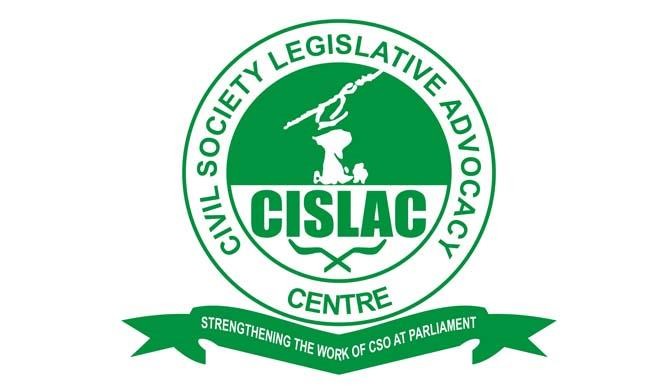Executive Director of Civil Society Legislative Advocacy Centre (CISLAC), Comrade Auwal Musa Rafisanjani, on Tuesday, disclosed that Nigeria can generate N4.59 trillion annually by taxing just 4,690 of Nigeria’s wealthiest individuals.
Rafisanjani, who disclosed this in Abuja during the opening of the Media Dialogue and Launch of the fair tax monitor index/Wealth taxation report with the theme: Taxing the rich’ Organised by CISLAC, underscored the need to introduce new tax reforms that are critical to building a fairer tax system that aligns with Nigeria’s developmental needs.
While stressing the need for a paradigm shift, he underscored the need to expand the Voluntary Assets and Income Declaration Scheme (VAIDS) that will boost Nigeria’s taxpayer database and fully exempt Nigerians earning below the minimum wage or less than N840,000 annually from Personal Income Tax (PIT) while raising the top tax rate to at least 40 per cent for the top one per cent.
He said: “As Nigeria continues to confront deep socioeconomic challenges, with over half of our population living in poverty, the need for tax reforms to fund essential services has never been more pressing. Nigeria faces an annual financing shortfall of over $10 billion to meet its Sustainable Development Goals (SDGs).
“Meanwhile, wealth is concentrated in the hands of a small elite, with tax evasion and avoidance eroding our fiscal capacity. A report jointly commissioned by the Federal Inland Revenue Service (FIRS) and the Joint Tax Board (JTB) reveals that 99% of the super-rich in Nigeria evade taxes, with a compliance rate of just 0.035%.
“Out of over 115,000 High Net-Worth Individuals (HNWIs) in Nigeria – those earning at least N40 million annually – only 40 have been identified as tax compliant.
“This situation reflects not only a glaring inequity but also a missed opportunity for revenue generation. By taxing just 4,690 of Nigeria’s wealthiest individuals, the government could generate N4.59 trillion annually – enough to more than double the nation’s health budget or reduce out-of-pocket health expenditures by 40%. These reforms are critical to building a fairer tax system that aligns with Nigeria’s developmental needs.”
Some of the key issues identified in the report include: Capital Gains Tax (CGT): Nigeria’s current CGT of 10% pales in comparison to peer countries like South Africa (18-21.6%), Ghana (15-35%), and Kenya (15%). These low rates, coupled with numerous exemptions, severely limit revenue generation from wealthy individuals and corporations.
“Regressive Taxation Policies: Recent hikes in Value Added Tax (VAT) from 5% to 7.5% have disproportionately affected lower-income households. It is critical that we address this imbalance by shifting towards progressive taxation—ensuring the wealthy pay their fair share while reducing the burden on the poor.
“Property Taxation: Revitalizing Nigeria’s property tax system will promote transparent land ownership and foster more accountable local governance. Proper standardization and digitization of property records are essential.
“Wealth Inequality: Wealth in Nigeria is starkly unequal, with the wealthiest 1% owning five times as much as the poorest 50%. This disparity, coupled with the weak enforcement of progressive taxes, leaves a huge gap in our revenue potential.”
While speaking on some of the challenges and opportunities of Nigeria’s decentralized tax administration, he said: “While federal laws provide the framework for addressing tax compliance among High Net-Worth Individuals (HNWIs), each State holds the authority to enact its own legislation on tax administration, creating both challenges and opportunities for reform.
“Success and failure of the Voluntary Assets and Income Declaration Scheme (VAIDS): VAIDS expanded Nigeria’s taxpayer database by 36%, adding 5 million new taxpayers by 2018, but only achieved 20% of its revenue target, raising N70 billion ($193 million), largely due to inadequate data, insufficiently trained staff, and corruption.”
In the bid to fix the gaps, the CISLAC helmsman called for establishment of a Dedicated HNWI Unit: Like Uganda, Nigeria should create a specialized unit within the FIRS to track and audit HNWIs, utilizing data from financial institutions and property registries.
“Implement a Net Wealth Tax: A comprehensive annual wealth tax on fortunes exceeding $5 million, $50 million, and $1 billion could raise over $6 billion.
“Reform CGT: Raise the Capital Gains Tax to align with global best practices and eliminate exemptions that favor the wealthy.
“Progressive VAT Exemptions and Luxury Taxes: Exempt basic goods from VAT while introducing luxury taxes on high-end goods like private jets, luxury cars, and yachts.
“Property Tax Reforms: Standardize property valuation and digitize land registries to improve tax collection.
“Progressive Personal Income Tax (PIT) Reform: Fully exempt Nigerians earning below the minimum wage or less than N840,000 annually from PIT while raising the top tax rate to at least 40% for the top 1%.
“Introduce Inheritance and Gift Tax: Targeting estates exceeding N50 million, with a progressive tax rate, to ensure wealth redistribution.
“Renegotiate Double Taxation Agreements (DTAs): Strengthen Nigeria’s tax sovereignty by reviewing DTAs that disproportionately benefit multinational corporations and establishing a specialized DTA unit within the FIRS.
“The time for change is now, and there is no room for delay. Nigeria’s tax system must evolve into a powerful tool for equitable development, compelling the wealthy to pay their fair share while easing the disproportionate burden on the most vulnerable.
“Today’s discussions are critical, as they will chart the urgent actions needed to create a tax system that is fairer, more efficient, and fully transparent,” he urged.
ALSO READ THESE TOP STORIES FROM NIGERIAN TRIBUNE
Bobrisky: Court orders Verydarkman to remove defamatory posts on Falana, Falz


